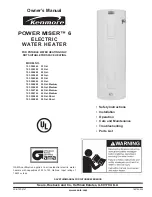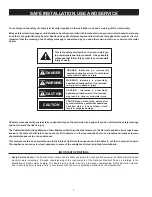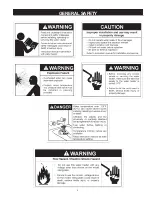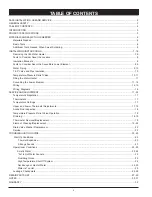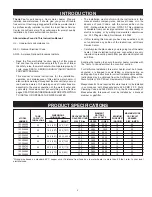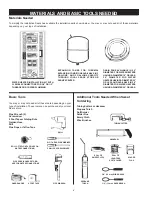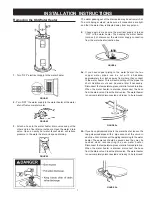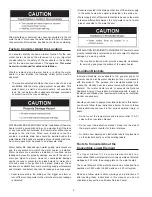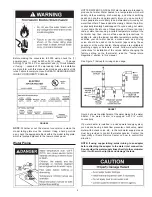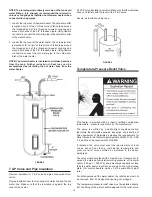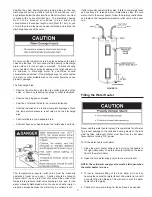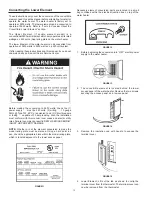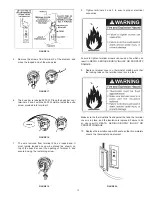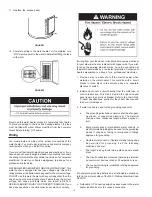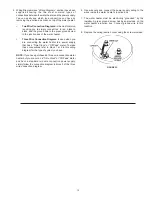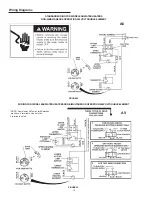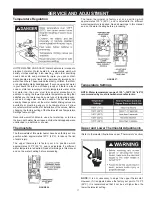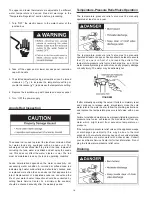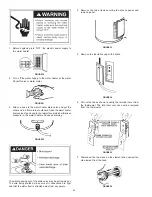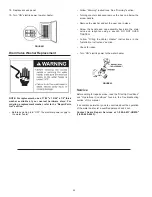
7
Removing the Old Water Heater
1.
Turn “OFF” electrical supply to the water heater.
FIGURE 1.
2.
Turn “OFF” the water supply to the water heater at the water
shut-off valve or water meter.
FIGURE 2.
3.
Attach a hose to the water heater drain valve and put the
other end in a floor drain or outdoors. Open the water drain
valve. Open a nearby hot water faucet which will relieve
pressure in the water heater and speed draining.
FIGURE 3.
The water passing out of the drain valve may be extremely hot.
To avoid being scalded, make sure all connections are tight
and that the water flow is directed away from any person.
4.
Check again to make sure the electrical supply is turned
“OFF” to the water heater. Then unplug the water heater
(cord set) or disconnect the electrical supply connection
from the water heater junction box.
FIGURE 4.
5a.
If you have copper piping to the water heater, the two
copper water pipes can be cut with a hacksaw
approximately four inches away from where they connect
to the water heater. This will avoid cutting off the pipes too
short. Additional cuts can be made later if necessary.
Disconnect the temperature-pressure relief valve drain line.
When the water heater is drained, disconnect the hose
from the drain valve. Close the drain valve. The water heater
is now completely disconnected and ready to be removed.
FIGURE 5a.
5b.
If you have galvanized pipe to the water heater, loosen the
two galvanized pipes with a pipe wrench at the union in
each line. Also disconnect the piping remaining to the water
heater. These pieces should be saved since they may be
needed when reconnecting the new water heater.
Disconnect the temperature-pressure relief valve drain line.
When the water heater is drained, disconnect the hose
from the drain valve. Close the drain valve. The water heater
is now completely disconnected and ready to be removed.
FIGURE 5b.
INSTALLATION INSTRUCTIONS

